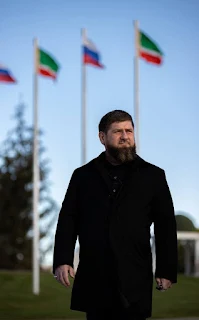
Russia loading a strategic missile In the Orenburg region
Russia's armed forces just loaded a strategic missile and released the following explanatory note:
In the Orenburg region, work continues on the re-equipment of the Yasnensky formation of the Strategic Missile Forces with the Avangard silo-based missile system
▫️ The infrastructure of the positional area for putting the next missile regiment on combat duty, which includes, in addition to the facilities of the combat launch complex itself, places for preparing duty shifts, carrying out combat duty and resting personnel, has been prepared.
▫️ The rocket is currently being loaded into the silo launcher.
The implementation of the measures planned for 2022 for the rearmament of the Strategic Missile Forces will increase the combat capabilities of the ground component of the strategic nuclear forces in fulfilling the tasks of strategic deterrence.









































